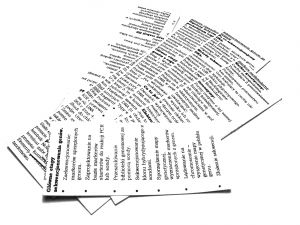A | B | C | D | E | F | G | H | I | J-K | L | M | N | O | P | Q-R | S | T | U-V | W-Z
 |
- Earned Premium is the amount advance premium an insurance policyholder has paid but, which has been “earned” by the insurance company because time has passed without claim. For example if an auto insurance policyholder pays 6-months of premium and the policy is cancelled after 2-months the insurance company has provided coverage for the 2-months and that portion of the paid insurance premiums has been earned by the insurance company and will not be refunded.
- Earthquake Insurance policies are much the same as a homeowners policies but without personal liability coverage. Generally, homeowners add the earthquake coverage as an endorsement to their homeowners policy. It is however most often a separate policy included as part of the homeowner package. The deductibles and percentage of coverage is generally different than the homeowners policy.
- Effective Date is the specific date when an insurance policy takes effect and coverage begins. The effective date should be clearly listed on your insurance policy declaration page.
- Eligibility date is the date a member of an insured group applies for insurance usually used for employer provided health insurance policies. The eligibility period is a specific period of time after the eligibility date when a member of a group may apply for insurance without evidence of insurability.
- Encumbrance is a property claim where the interest of the property owner is reduced in the same amount as the encumbrance. The most common encumbrance is a mortgage, where the bank or finance company holds an encumbrance in the amount of a loan. Other encumbrance examples include liens for contract work and materials, or a right of dower.
- Endorsements are written forms attached to an existing insurance policy. When there is any kind of change made to an insurance policy which changes the policy’s coverage, terms, conditions or exclusions an endorsement must be made to the original policy. Often endorsements are called riders.
- Escrow Accounts are the funds a lender collects in order to pay mortgage and homeowners insurance. Some escrow accounts also collect property taxes.
- Exclusions are the same as exceptions. Every insurance policy should include sections outlining any conditions or circumstances where insurance coverage will not provide benefits.
- Exposure is a measurement of risk and vulnerability to loss. Exposure is generally expressed in dollar amounts or units.
- Extended Replacement Cost is an option with personal property policies such as homeowner insurance extending the replacement cost loss coverage to include specific things or provide inflation or replacement value coverage.
Photo credit for this blog entry:  (standard use restrictions apply)
(standard use restrictions apply)
Glossary of Insurance Terms:
A | B | C | D | E | F | G | H | I | J-K | L | M | N | O | P | Q-R | S | T | U-V | W-Z
Families.com Blogs are for informational purposes only. Families.com assumes no responsibility for consumer choices. Consumers are reminded that it is their responsibility to research their choices properly and speak to a certified insurance professional prior to making any decision as important as an insurance purchase.

